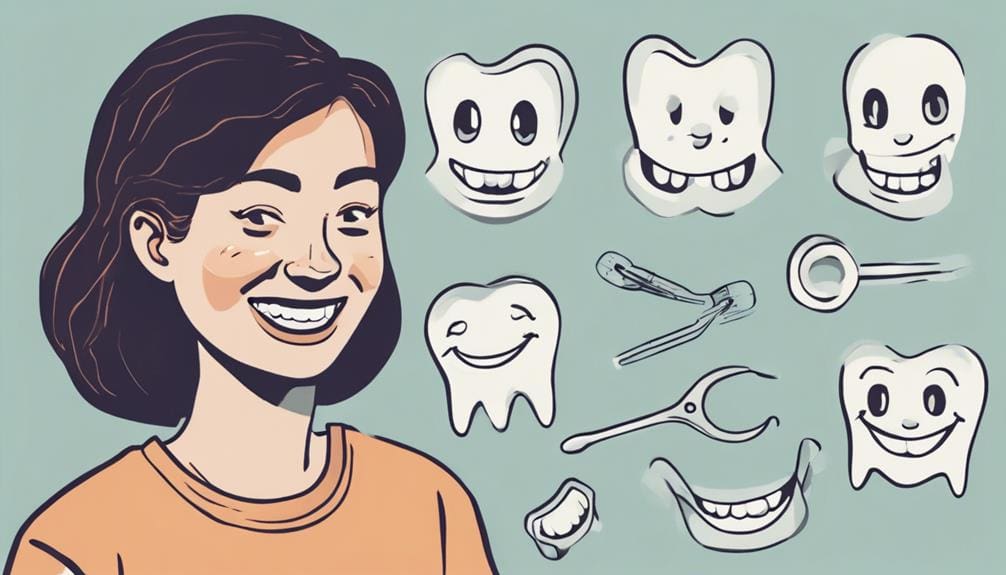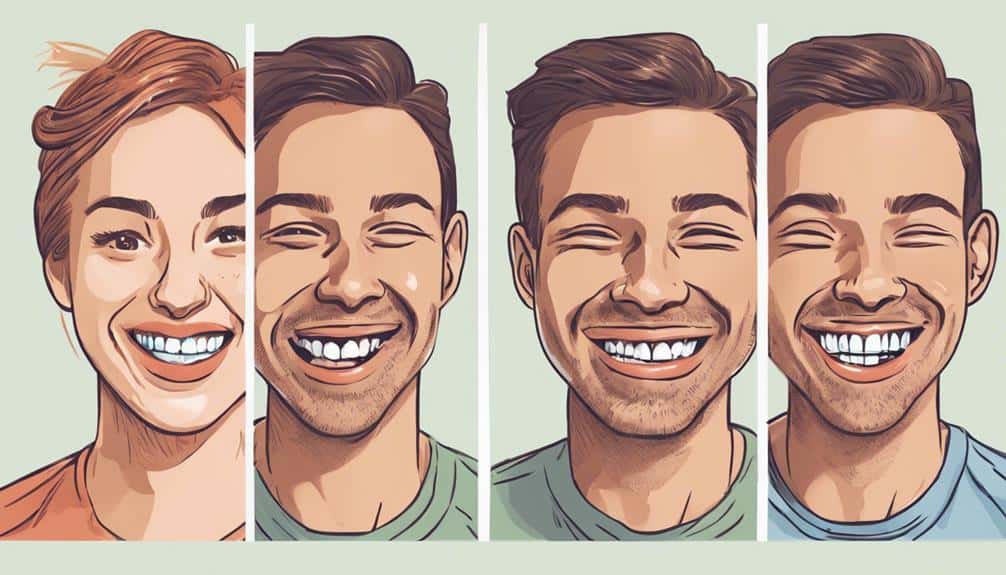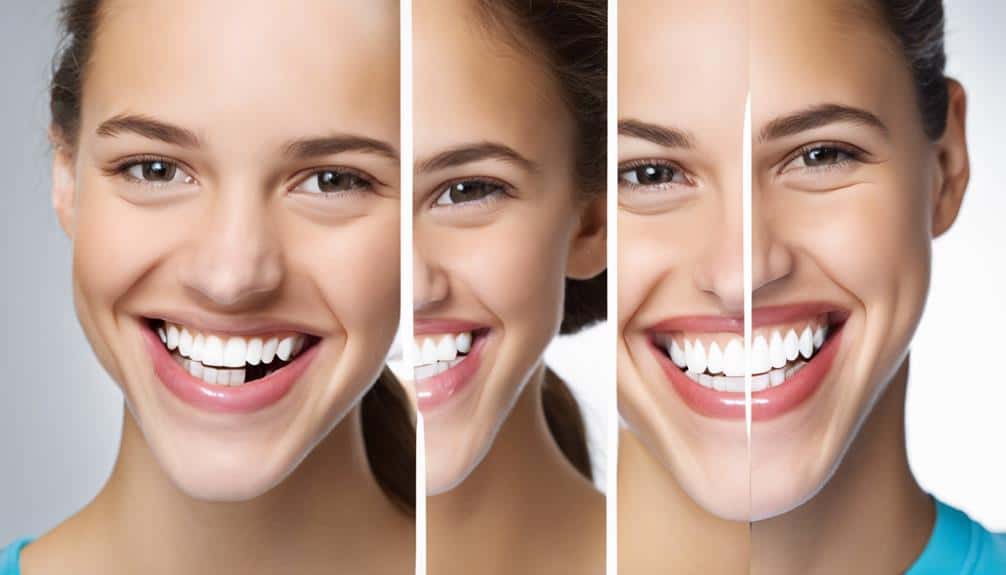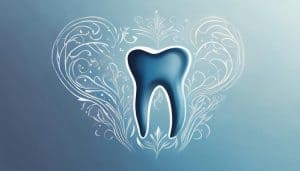You're seeking to fix your crooked teeth, and there are several effective methods to choose from. Braces and aligners are popular options, but dental bonding and porcelain veneers offer alternative solutions for minor to moderate misalignments. To determine the best treatment for you, consider the severity of your crooked teeth, your oral health needs, and personal preferences. With so many options available, understanding your choices is essential to achieving a straighter, healthier smile. As you explore these options further, you'll discover which treatment method is the perfect fit for your unique needs.
Key Takeaways
• Understanding the root causes of crooked teeth, such as genetics or habits, is essential in determining the best treatment approach.
• Dental bonding and porcelain veneers offer effective alternatives to traditional orthodontic treatment for fixing crooked teeth.
• Treatment options vary in cost, suitability, and effectiveness, and the best solution depends on oral health needs, personal preferences, and budget considerations.
• Aligners, such as Invisalign, provide a discreet and faster orthodontic treatment for mild to moderate misalignment compared to traditional braces.
• Consulting a dental professional is vital to determine the most suitable treatment method, including braces, aligners, surgery, or cosmetic techniques like veneers.
Understanding Crooked Teeth
Crooked teeth, a common orthodontic issue, can result from a combination of factors, including genetics, habits like thumb sucking, trauma, or tooth decay, which can ultimately affect not only your oral health but also your self-esteem and overall well-being.
As you navigate the complexities of dental issues, it's important to understand the underlying causes of crooked teeth. Your teeth can become crooked due to genetic predisposition, childhood habits like thumb sucking, or even traumatic injuries. Additionally, tooth decay can also contribute to the development of crooked teeth.
If left untreated, crooked teeth can lead to more severe dental issues, such as periodontal disease, compromised chewing, wear on teeth, and speech difficulties. By understanding the root causes of crooked teeth, you can take the first step towards fixing them.
Consulting a dental professional is vital to determine the best treatment approach based on your individual needs and goals. With the right treatment options, including braces, aligners, surgery, or cosmetic techniques like veneers, you can achieve a healthier, more confident smile.
Fixing Teeth Without Braces

If you're seeking a quicker, more discreet solution to straighten your teeth without the commitment of traditional orthodontic treatment, dental bonding and porcelain veneers offer effective alternatives.
These cosmetic solutions can provide quick results for individuals looking to improve the alignment of their teeth without traditional braces.
Dental bonding is a non-invasive procedure that uses tooth-colored resin to reshape misaligned teeth, providing a subtle yet effective solution for minor tooth alignment issues.
Porcelain veneers, on the other hand, are custom-made shells that cover the front surface of teeth to create the appearance of straighter teeth.
Both options can be used to address misaligned teeth, enhancing your oral care routine and overall smile.
Consult with a dentist to determine the best option for fixing crooked teeth without braces based on your specific needs and goals.
With these innovative solutions, you can achieve a more radiant, confident smile without the hassle of traditional orthodontic treatment.
Comparing Treatment Options

When evaluating the various choices for fixing crooked teeth, you'll need to assess the pros and cons of each treatment. Dental bonding, porcelain veneers, dental crowns, and Invisalign all have unique benefits and drawbacks.
Each treatment option varies in cost, suitability, and effectiveness based on individual cases and dentist recommendations. Here are some key differences to take into account:
- Dental Bonding: Ideal for minor to moderate misalignments, providing quick and aesthetically pleasing results.
- Porcelain Veneers: Suitable for minor to moderate misalignments, offering a more enduring solution.
- Dental Crowns: Addresses both structural and alignment issues simultaneously, offering a comprehensive solution for crooked teeth.
- Invisalign: A discreet orthodontic treatment suitable for mild to moderate misalignment, gaps, and overcrowding.
Ultimately, the best treatment option for you'll depend on the severity of your crooked teeth, your budget, and your personal preferences. By understanding the strengths and weaknesses of each option, you can make an informed decision with your dentist's guidance.
Can Clearing Red Eyes Without Eye Drops Impact My Crooked Teeth?
Yes, clearing red eyes naturally can impact your crooked teeth. Rubbing your eyes aggressively to clear redness can put pressure on your teeth and jaw, leading to misalignment over time. To avoid this, consider using cold compresses or allergy medication to soothe red eyes without causing harm to your teeth.
Choosing the Best Solution

Your unique oral health needs and personal preferences play a significant role in determining the most suitable solution for your crooked teeth. When choosing the best treatment method, consider the severity of your crooked teeth and evaluate your oral health goals and budget considerations.
You may need to decide between braces, aligners, surgery, or cosmetic techniques like veneers, depending on your individual needs and desired aesthetic outcomes.
Consult with dental professionals to make an informed decision. They can help you weigh the pros and cons of each option. For instance, aligners offer faster results compared to traditional braces due to consistent pressure on the teeth. On the other hand, surgery may be necessary for more severe cases.
Cosmetic techniques can provide a quick fix, but may not address underlying oral health issues. By considering your oral health needs, budget, and personal preferences, you can choose the treatment method that best fits your needs.
With the right guidance from dental professionals, you can achieve a healthier, straighter smile that boosts your confidence and overall well-being.
Frequently Asked Questions
How Do You Fix 4 Crooked Teeth?
You're wondering how to fix four crooked teeth? Well, you're in luck! With modern orthodontic solutions, you've got options.
Braces can gradually shift your teeth into place over 1-3 years, while clear aligners like Invisalign offer a discreet, removable solution.
But before you start, you'll need a consultation with an orthodontist to determine the best treatment plan tailored to your unique needs.
How Can I Fix My Crooked Teeth Myself?
Don't even think about trying to fix your crooked teeth yourself! You'll likely end up causing more harm than good, leading to permanent damage or further complications.
Instead, consult a qualified orthodontist who can provide personalized guidance and treatment. They'll help you determine the best course of action, whether it's braces or aligners, to safely and effectively straighten your teeth.
What Is the Fastest Solution for Crooked Teeth?
You're seeking the fastest solution for crooked teeth, and surprisingly, 1 in 5 orthodontic patients opt for rapid treatment.
Invisalign aligners emerge as a top contender, offering a remarkably swift solution with treatment times averaging just 6 to 18 months. By wearing these clear aligners for the recommended hours daily, you can achieve straighter teeth in no time.
With new aligners every 1-2 weeks, you'll be on your way to a radiant smile in a fraction of the time traditional braces take.
What Is the Best Method to Straighten Your Teeth?
You're wondering what the best method is to straighten your teeth.
Well, it depends on your unique needs.
If you're looking for a reliable solution, traditional braces might be the way to go.
However, if you prefer a more discreet approach, clear aligners like Invisalign could be the perfect fit.
For more severe cases, surgery might be necessary.
Ultimately, it's essential to consult with an orthodontist to determine the most effective method for your teeth.



